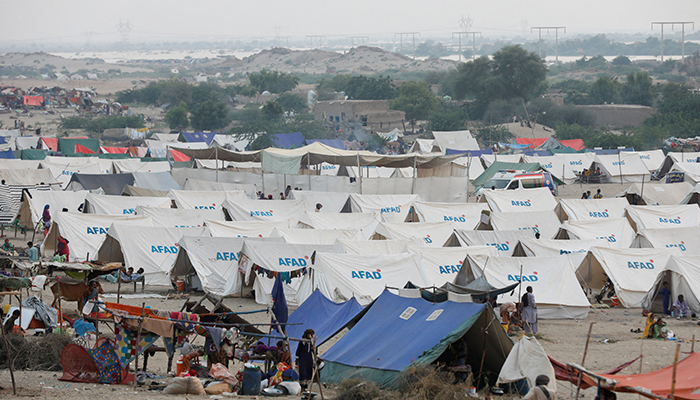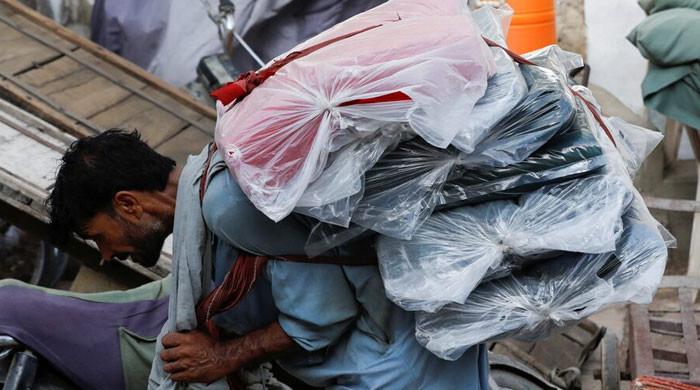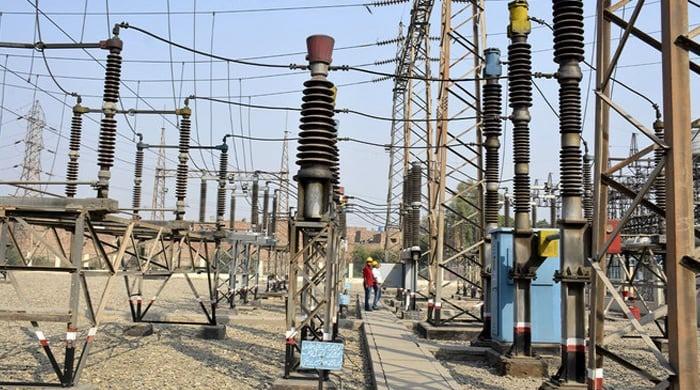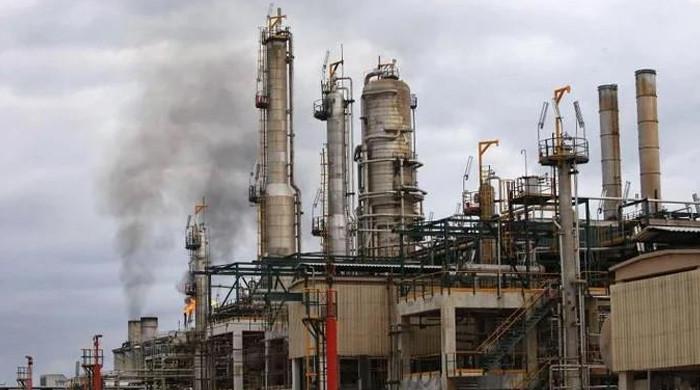US pledges further $30m in aid to flood-hit Pakistan
Funding will take total disaster-related assistance from US to Pakistan this year to $97 million
October 27, 2022

- Funding takes total disaster-related assistance to $97 million.
- "New funding will expand efforts to address immediate needs," US says.
- Torrential monsoon rains and floods have killed over 1,000 people.
ISLAMABAD: The United States will give Pakistan a further $30 million in aid to help millions of people whose lives were disrupted by severe flooding in recent months, the US Embassy in Islamabad said on Thursday.
"The new funding will expand efforts to address immediate needs, scaling up assistance to the most affected communities and enabling USAID to reach more than 4 million people," said a statement from the US Embassy, referring to the US government aid agency.
The funding would take the total disaster-related assistance from the US to Pakistan this year to $97 million.
Pakistani officials have estimated damage from torrential monsoon rains that killed over 1,000 people and displaced tens of millions at more than $40 billion.
Some Pakistani leaders have said the world needs to do more to provide financial support to the South Asian nation, which is highly vulnerable to climate-related disasters despite having produced a tiny fraction of global greenhouse gas emissions.
US Ambassador Donald Blome said during a visit to flood-hit areas in the southern province of Sindh that the new assistance would help with food and medical support as well as provide shelter supplies for homeless citizens in the lead-up to winter.
This month, the United Nations revised up its humanitarian aid appeal for Pakistan five-fold to $816 million from $160 million, as a surge of water-borne diseases and fear of growing hunger posed new dangers after weeks of unprecedented flooding.











